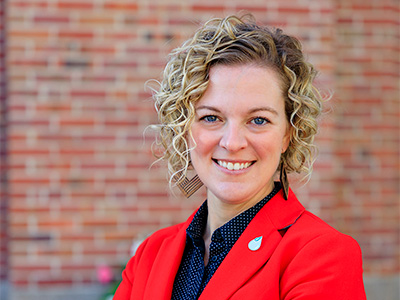Agriculture uses 70 percent of global freshwater, and farmers will need to grow more food with less reliable water availability to meet the demands of a growing population. To address the critical challenges of balancing water security and food security over the next 15 years, Cambridge University Press has launched a new Cambridge Sustainability Commission on Water for Food Futures (CWFF) led by the International Water Management Institute (IWMI) and the Daugherty Water for Food Global Institute at the University of Nebraska (DWFI). Results will be published in Cambridge University Press’s Global Sustainability journal in 2027, contributing vital research and insights to the global understanding of these pressing issues.
This new partnership brings together the expertise of two leading organizations dedicated to sustainable water and food solutions. By combining their knowledge and resources, IWMI and DWFI are committed to driving innovative approaches and policies to ensure a more secure future for both water and food systems worldwide. At the 2025 Water for Food Global Conference hosted by DWFI in Lincoln, Nebraska, U.S.A., the two institutes kicked off their partnership with an exploratory side session to engage stakeholders in shaping the commission’s priorities, partnerships, and outputs.
The Commission will build upon the collective missions stemming from the Transformative Futures for Water Security dialogue, which was a bottom-up led process to capture the priorities of more than 1,000 water or food stakeholders, and 440 institutions across the Global South. It will also build and expand upon the recent report from the Global Commission on the Economics of Water, which calls for the “launch of a new revolution in food systems.”
The Commission's purpose is to critically examine existing approaches to water management in food systems, identify limitations in meeting future needs amidst climate uncertainty and resource pressures, and highlight emerging innovations and policy directions. Through a demand-driven approach informed by stakeholder consultations, the CWFF will explore themes such as meeting societal water and food demands, aligning consumption with water uncertainty, embedding water in agricultural practices and intensification, and optimizing water use across the food system. The findings of the CWFF will be captured in a high-level report to be launched in 2027, contributing vital research and insights to global understanding and catalyzing action for a more secure future for water and food systems worldwide.
###
About the International Water Management Institute
The International Water Management Institute (IWMI) is an international, research-for-development organization that works with governments, civil society and the private sector to solve water problems in developing countries and scale up solutions. Through partnership, IWMI combines research on the sustainable use of water and land resources, knowledge services and products with capacity strengthening, dialogue and policy analysis to support implementation of water management solutions for agriculture, ecosystems, climate change and inclusive economic growth. Headquartered in Colombo, Sri Lanka, IWMI is a CGIAR Research Center with offices in 15 countries and a global network of scientists operating in more than 55 countries. Learn more at iwmi.org.
About the Daugherty Water for Food Global Institute at the University of Nebraska
The Daugherty Water for Food Global Institute (DWFI) at the University of Nebraska was founded in 2010 to have a lasting and significant impact on achieving more food security with less pressure on scarce water resources by conducting scientific and policy research, using the research results to inform and advise policymakers, and sharing knowledge through education and communication. DWFI’s vision is for a food and water secure world: one in which global food security is ensured without compromising the use of water to meet other vital human and environmental needs. Learn more at waterforfood.nebraska.edu.
About the Cambridge University Press / Cambridge Sustainability Commissions
Cambridge University Press is the academic and Bibles publisher of Cambridge University Press & Assessment. It publishes books and journals, serving customers in higher education through research, education products and services. It is part of the University of Cambridge, delivering trusted research and learning materials that spread knowledge, spark curiosity and aid understanding of the world we live in.
Cambridge University Press launched Cambridge Sustainability Commissions (CSCs), scientific assessments of any global sustainability issue pertaining to planetary and societal resilience, or any solutions for societal transformations. A CSC exists to answer specific research questions on the themes of global sustainability, and to do so by identifying, appraising and synthesizing relevant evidence-based natural and social science expertise. All CSCs are approved by the Editorial leadership of the journal Global Sustainability at the project proposal stage.


